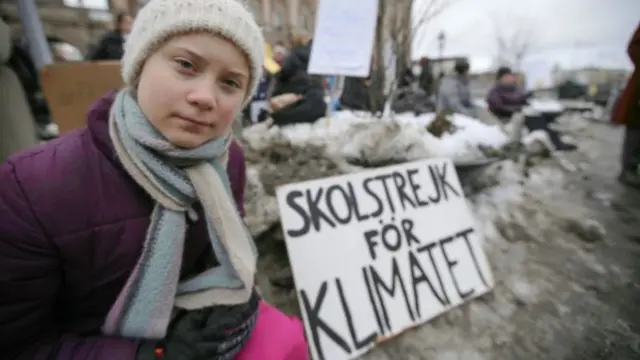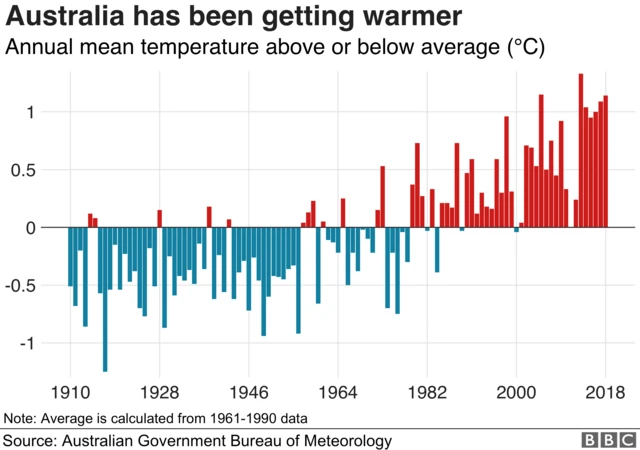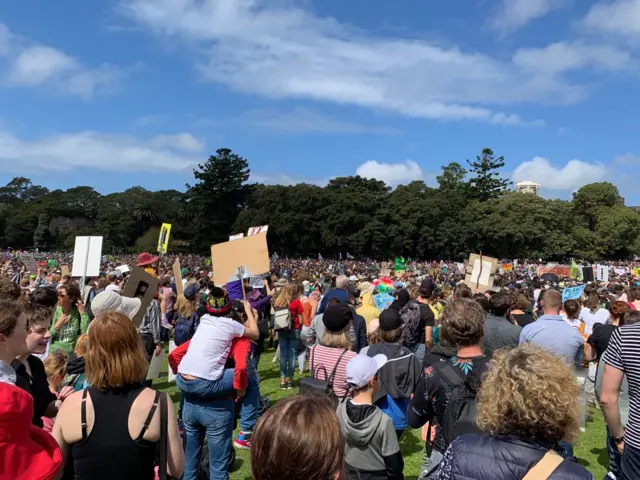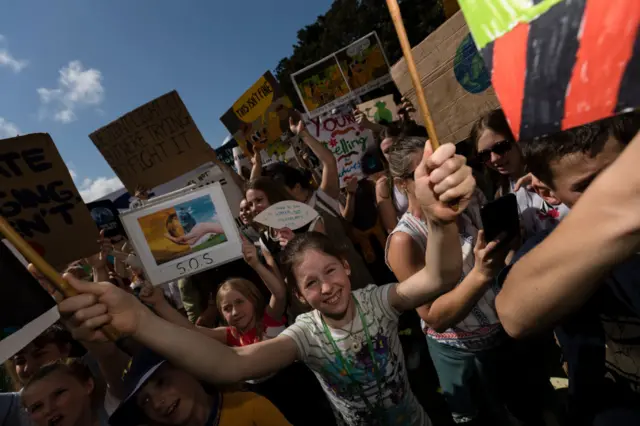From one activist to millionspublished at 04:43 BST 20 September 2019
 Andreas Illmer
Andreas Illmer
Singapore
Here's some more on Greta Thurberg, the teenager credited with inspiring these protests.
Back in 2018, Greta started ditching school to sit by herself outside parliament in Stockholm with a protest sign calling for climate action.
Her action soon snowballed into demonstrations across Europe, the US and Australia. As they're usually on a Friday, they became known as Fridays for Future or School Strike for Climate. Students are essentially calling on their governments to put their money where their mouth is and take urgent action.
Since those early days in Sweden, the now 16-year old has gone from solitary activist to global figurehead, speaking in front of the US Congress and fist bumping Barack Obama.



